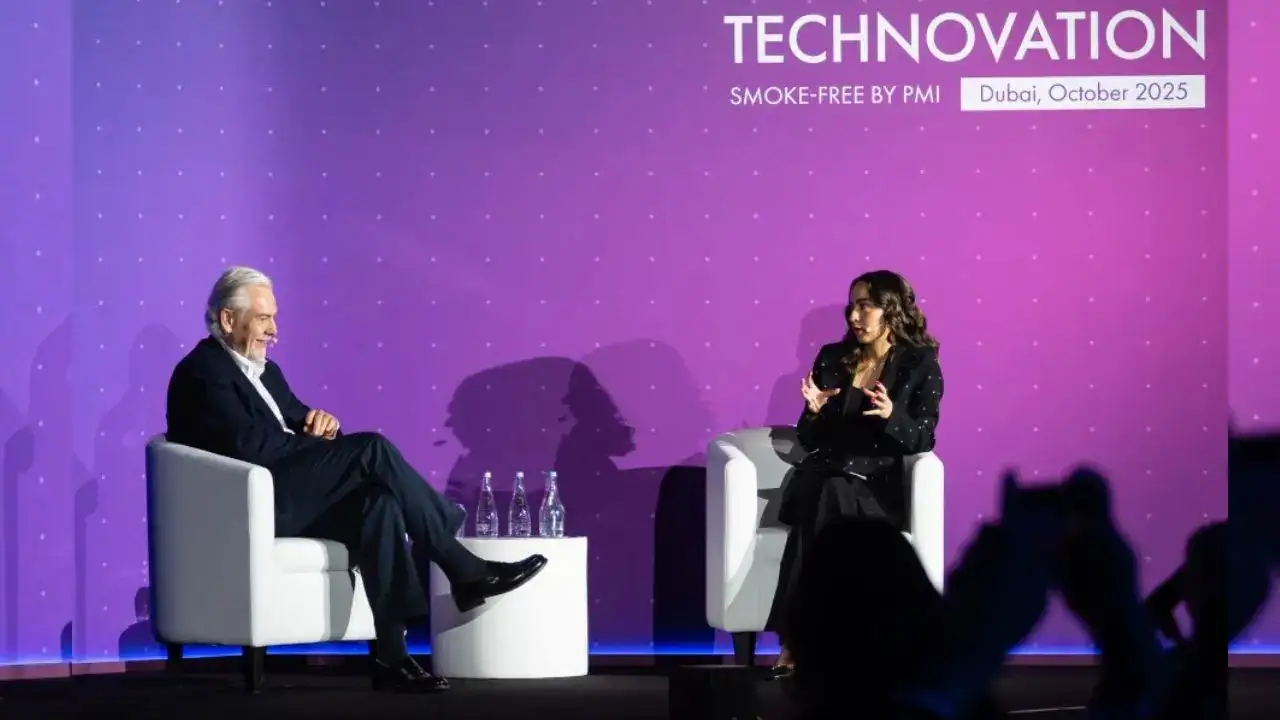Copyright timesnownews

Technovation by Philip Morris International was less about show-and-tell, more about the science behind reducing the harm from smoking. Conversations centred on one simple premise, most of the disease burden linked to smoking comes from burning tobacco, not nicotine itself. If you remove combustion, you cut the average levels of harmful chemicals found in cigarette smoke, although risk is not eliminated and nicotine remains addictive. The supporting materials were clear on this continuum of risk: quitting entirely is best, non-combustible options sit below cigarettes on the risk ladder, and any claim of reduced exposure needs to be backed by product-specific science. Speaking at the event, Jacek Olczak, CEO Philip Morris International said, “Cigarettes should never be the easiest or only option. In a world where smoke-free technology is available, this should not be the case. Today, some smokers have access to better alternatives, while others are left without choices. Do we want a future where only certain countries eradicate smoking, while others still see rates soaring above 20% or even 40%?’’ He further added, “The technology for a smoke-free future is here and ready for change, but real progress happens when innovation reaches people’s lives. Only by working together — regulators, scientists, civil society, and consumers — we can overcome barriers and create lasting change.” Speakers and exhibits returned to two connected ideas. First, individual risk reduction, which relies on eliminating combustion and verifying lower emissions relative to cigarette smoke. Second, population harm reduction, which only materialises if adult smokers who do not quit actually switch and stay switched, and if youth access is prevented. Acceptance, sensory experience, and a nicotine profile that can substitute for a cigarette all matter for real-world adoption, which is why the research emphasis goes beyond chemistry to human factors. What The Science Says About Alternatives Technically, smoke-free products fall into three broad groups, heated tobacco, e-vapour, and oral nicotine. Heated formats generate an aerosol by warming tobacco below the point of combustion. E-vapour heats a nicotine-containing liquid to create an aerosol. Oral nicotine is placed in the mouth, typically without involving any inhalation. Across these categories, the shared aim is to avoid smoke entirely. PMI places stress on two caveats: products are not risk-free, and reduced formation of harmful constituents must be demonstrated for each product rather than assumed. PMI’s science research also sets out a decade-plus programme of R&D, with electronic product development centres, materials science labs, and regulatory science teams publishing methods and results. The company frames this as a long-term shift of resources towards smoke-free, backed by a sizeable patent estate and a pattern of third-party regulatory interactions. A Multi-Category Smoke-Free Approach A recurring theme at Technovation was choice across categories, since different adult smokers prefer different product attributes. The firm positions this as a multi-category portfolio designed to replace every cigarette for adults who would otherwise continue to smoke, with a stated ambition to generate over two-thirds of net revenues from smoke-free products by 2030 and to be available in 100 markets by then. Since 2008, the company reports more than USD 14 billion invested in development, scientific substantiation, manufacturing, and commercialisation of smoke-free offerings. None of this guarantees outcomes, but it does show the direction of travel and the scale of the bet. Those investment and availability targets sit within a broader set of business transformation metrics. Recent snapshots include growth in markets where smoke-free accounts for a majority of net revenues, a high proportion of R&D spend dedicated to smoke-free, and expansion in low and middle income markets. These are auditable measures the company uses to show progress, rather than marketing claims alone. Frederic De Wilde, President South & Southeast Asia, Commonwealth of Independent States and Middle East and Africa Region at Philip Morris International stated, “Bringing smoke-free alternatives to developing economies comes with unique challenges: many smokers remain unaware of the health risks related to cigarettes, and economic barriers often limit access to new technologies. High upfront costs can be daunting, but by developing a diverse product portfolio, we aim to make smoke-free choices accessible to people from all income levels. Our mission is clear, no one should be left behind on the journey to a smoke-free future. By understanding local needs and purchasing power, we are making better alternatives available to a broader audience.” Guardrails, Youth Access Prevention And Illicit Trade Technovation also leaned into the less glamorous, arguably more consequential, side of transformation, keeping products out of the hands of minors and away from illicit channels. Materials in the exhibition highlighted age-verification across retail and online, governance for indirect retail partners, and a stated zero-tolerance stance on illegal trade. The company describes track-and-trace systems, serialised authentication, firmware-level protections in electronic devices, and collaboration with law enforcement to help identify and remove illegal listings. The rationale is straightforward, illicit products undercut consumer protection and can derail both cessation and switching efforts. The policy context here matters. PMI states that reducing cigarette consumption and fighting illicit trade should run in parallel with approaches that make better alternatives affordable and accessible for adults who do not quit. The company notes it supports relevant international frameworks and that its supply-chain controls cover factories and partners globally, including risk assessments for diversion. For India, where regulation is stringent, these access controls and enforcement hooks are the parts to watch in any discussion about public health outcomes. The Indian Context For India, the takeaways from Technovation translate into a pragmatic public health lens that can sit alongside existing strict rules. The science presented emphasises that eliminating combustion reduces exposure to harmful constituents, which nudges the conversation toward substitution for adults who do not quit, while keeping cessation as the first choice. For policymakers, the actionable pieces are clearer standards for product assessment, transparent emissions reporting, and tight age-gating across retail and online channels, coupled with tougher action against illicit trade. For clinicians and researchers, it points to local studies on real-world switching, biomarkers, and patterns of dual use, so guidance reflects Indian behaviour and affordability. For industry, it suggests investment in safer-by-design engineering and supply-chain authentication without marketing gloss. Most of all, it signals that outcomes improve when science, safeguards, and access for adults only move together, with communication that respects the letter and spirit of Indian law and ethics. Get Latest News live on Times Now along with Breaking News and Top Headlines from Technology Science and around the world.



